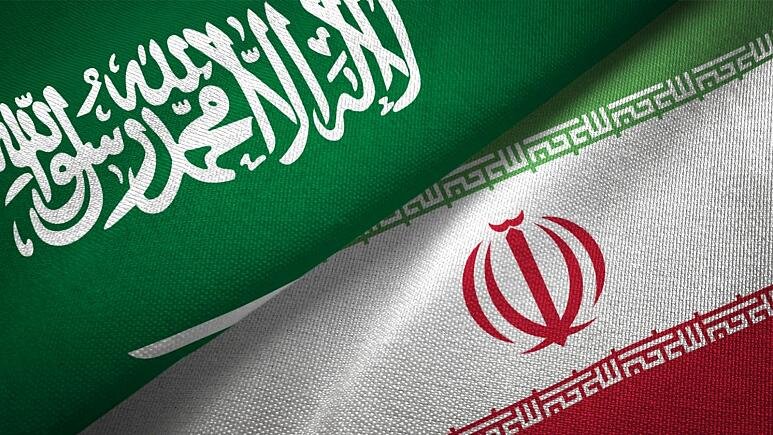Iran and the reconciliation drive in the region

TEHRAN – A wind of reconciliation is blowing across the region. Many countries are patching up their relations after years of antagonism. But will this reconciliation drive expand to include a thaw in Iran-Saudi Arabia relations?
On August 30, while many observers were busy taking a deep dive into the outcome of the Baghdad regional summit, a very important phone conversation took place between Sheikh Mohamed bin Zayed Al Nahyan, Crown Prince of Abu Dhabi and Deputy Supreme Commander of the United Aarab Emirates Armed Forces, and Recep Tayyip Erdogan, President of Turkey.
The two leaders “reviewed the prospects of reinforcing the relations between the two nations in a way that serves their common interests and their two peoples,” the UAE official news agency, WAM, reported. It said they exchanged views over a number of international and regional issues of interest.
This conversation came almost a week after UAE National Security Adviser Sheikh Tahnoun bin Zayed Al Nahyan paid a surprise visit to Turkey, where he met with Erdogan.
Ankara and Abu Dhabi have been at loggerheads over the last decade since the eruption of several upheavals in some Arab countries. While Turkey, together with Qatar, supported Islamist factions such as the Muslim Brotherhood in the Arab world, UAE and Saudi Arabia, along with Egypt and Bahrain, strongly opposed the rise of political Islam.
This political polarization reached its climax in 2017 when a quartet of Arab states – UAE, Saudi Arabia, Egypt, and Bahrain – severed diplomatic ties with Qatar and imposed a blockade on it for its alignment with the Islamists and Turkey.
But disagreements began to fade earlier this year when Saudi Arabia hosted a summit of the Persian Gulf Cooperation Council with the participation of the emir of Qatar, Sheikh Tamim bin Hamad Al Thani. The Al Ula summit accelerated reconciliation among Saudi Arabia, the UAE, and Egypt with Qatar, and most recently Turkey. The recent Baghdad regional summit amended what was left of disagreements between these countries. In Baghdad, the emir of Qatar met with Egyptian President Adel Fattah al-Sisi, a rare meeting that served as the latest indication of reconciliation in the region. A few days earlier, Sheikh Tamim met with Sheikh Tahnoun.
And Egyptian Deputy Foreign Minister Hamdi Sanad Loza will pay a visit to Ankara on September 7-8, to hold the second round of exploratory talks with Turkish officials in preparation for the normalization of relations between the two countries.
Amid all this, Iran stood out as the only country in the region whose relations with its regional rivals remained tense and strained. But will this trend continue or Iran, too, will jump on the bandwagon of reconciliation?
First of all, it should be noted that Iran had already joined the reconciliation drive but no tangible success has been achieved. Iran has announced on multiple occasions that it was ready to open a new chapter with Saudi Arabia. Former Iranian Foreign Minister Mohammad Javad Zarif even voiced readiness to visit Riyadh and dispatch an ambassador to Saudi Arabia.
In addition, since April, Iran and Saudi Arabia began several rounds of what can be called exploratory talks in Baghdad concurrently with the nuclear talks between Iran and major world powers in Vienna.
But all these diplomatic efforts failed to break the wall of mistrust currently prevailing in the Iran-Saudi relations, which were cut in 2016 after a mob of Iranian protesters angry over the execution of a prominent Shiite cleric by Saudi Arabia stormed the Saudi embassy in Tehran.
Some in the region would like to predict that Tehran and Riyadh, even if they continue their talks, will likely fail to reach a deal on patching up their relations because the type of rivalry between the two countries is far more different than that between, for instance, the UAE and Turkey. Because the rivalry between Iran and Saudi Arabia has implications that are deeply embodied on the ground.
But it’s too early to get disappointed at the prospect of a thaw in Tehran-Riyadh relations simply because the talks between the Iranians and their Saudi counterparts have not reached their end yet.
Iranian Ambassador to Iraq Iraj Masjedi has recently announced that the fourth round of Iran-Saudi talks is expected to take place soon. Speaking at an event in Baghdad, the ambassador said, “So far, we have had three rounds of talks with the Saudi side, and the fourth round will be held following the formation of the new Iranian government.”
Underlining that Iran is a large and civilized country and is ready for any kind of dialogue with other countries, including Saudi Arabia, Masjedi said, “Iran has declared its readiness for dialogue and peace and has extended its hand to help neighboring countries and the region.”
Leave a Comment